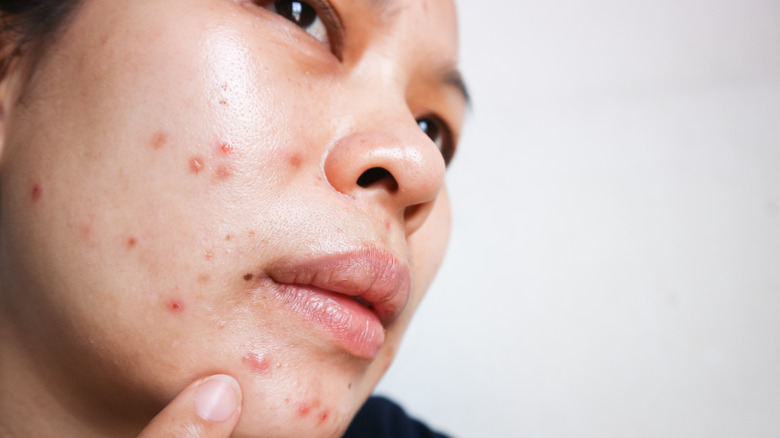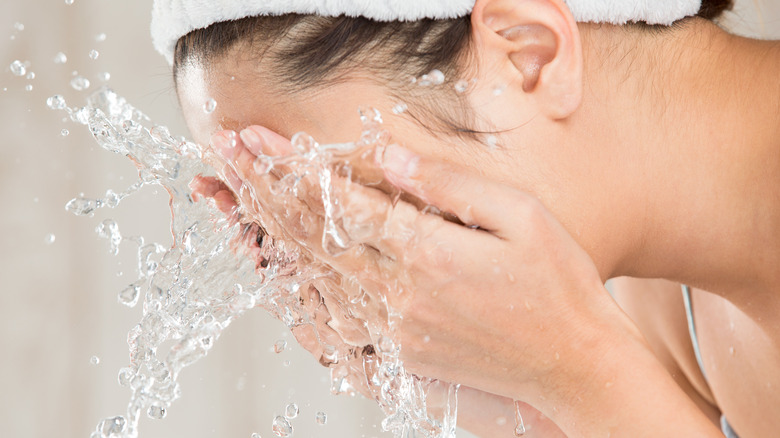The Real Reason Some Adults Still Get Acne
Getting into your 30s or 40s and discovering you're still having breakouts can be pretty frustrating. Shouldn't that have stopped after adolescence? For many people, acne does clear up after the teenage years, but adult acne is quite common, according to Harvard Health Publishing, and exists for many of the same reasons we see it in our younger years.
There are four key factors that contribute to acne: overproduction of oil, clogged pores, inflammation, and bacteria. There are some things that can influence these key factors — like diet, beauty products, and hormones — that can cause acne flareups at any age.
A few medications, including corticosteroids, antidepressants, and some epilepsy drugs are also known to trigger acne, according to Healthline. If you're having trouble with breakouts, check the side effects of your medications and talk to your doctor if acne is listed as a potential side effect.
You're more likely to have acne in your adult years if someone in your family struggles with it (via American Academy of Dermatology). It's also important to note the role that stress plays. When we are stressed, our body produces hormones called androgens. These increase production of oil which can clog pores and cause acne.
Good habits are key to prevention
To prevent adult acne, follow a few simple guidelines. Purchase and use cosmetics, sunscreens, and skincare products that are labeled non-comedogenic, non-acnegenic, oil-free, or which state that they won't clog pores (via Harvard Health Publishing). Clean your face after sweating and wash off makeup before going to bed with a gentle cleanser. Avoid using skin products or hair care products that contain oil, which can clog pores.
For women who are prone to breakouts, consider using a powder foundation rather than a cream. Liquid silicone matte foundations with dimethicone or cyclomethicone can also be good options, according to WebMD.
Fluctuations in hormone levels can increase oil production and lead to breakouts, so notice if your acne seems to worsen around certain times of the month. You can talk to your doctor about testing your hormone levels to see if treatment would help.
Inflammation can contribute to acne, and certain foods have been linked to increased inflammation. Dairy and high-glycemic-index-foods have both been implicated in increased acne among youth and young adults. If you struggle with breakouts, consider limiting their intake.


